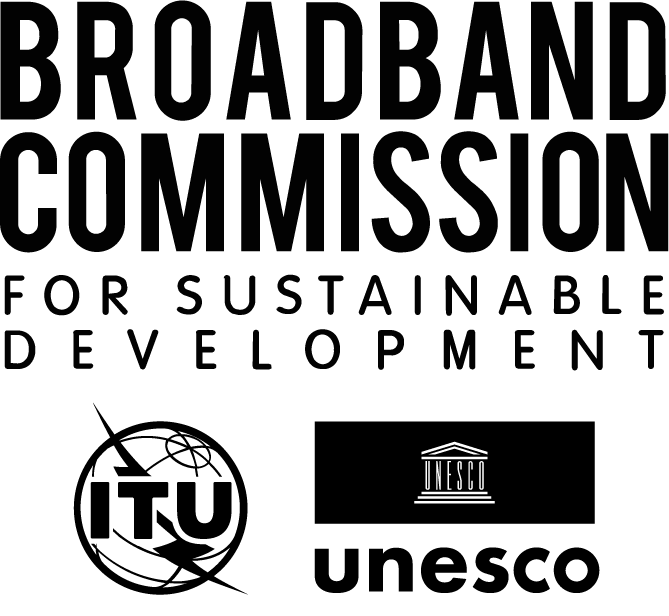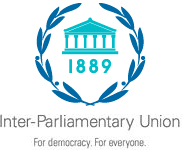Acronym: BCSD
Established: 2010
Address: Place des Nations, 1211 Geneva 20, Switzerland
Website:
https://www.broadbandcommission.org/Pages/default.aspx
Stakeholder group: International and regional organisations
The Broadband Commission is a high-level public-private partnership fostering digital cooperation and developing actionable recommendations for achieving universal meaningful connectivity as a means of advancing progress on the sustainable development goals (SDGs).
Established in 2010 by the International Telecommunication Union (ITU), the United Nations Educational, Scientific and Cultural Organisation (UNESCO), HE President Paul Kagame of Rwanda, and Mr Carlos Slim Helú of Mexico, its mission is to boost the importance of broadband on the international policy agenda and expand broadband access to every country. Today, the Commission is composed of more than 50 Commissioners who represent a cross-cutting group of top CEOs and industry leaders; senior policymakers and government representatives; and experts from international agencies, academia, and organisations concerned with development.
The Commission acts as a UN advocacy engine for the implementation of the UN Secretary-General’s Roadmap for Digital Cooperation, leveraging the strength of its membership and collective expertise to advocate for meaningful, safe, secure, and sustainable broadband communications services that reflect human and children’s rights.
Digital activities
The Commission develops policy recommendations and thought leadership focused on the use of broadband connectivity to accelerate progress towards achieving the UN’s 2030 Agenda for Sustainable Development and universal and meaningful connectivity. To mobilise efforts to bring the life-changing benefits of digital transformation to everyone, the Broadband Commission puts broadband connectivity at the forefront of global policy discussions.
The Commission’s efforts are detailed in our flagship annual collaborative State of Broadband Report and Year in Review, and throughout the year, take the form of thematic Working Groups and their publications, regular meetings, and advocacy activities on the margins of other key events such as SDG Digital, GSMA’s MWC, HLPF, WSIS, and UNGA.
The Broadband Commission outlines its seven objectives in its 2025 Broadband Advocacy Targets. These targets reflect ambitious and aspirational goals and function as a policy and programmatic guide for national and international action in sustainable and inclusive broadband development.
Each year, the Commission hosts Working Groups to dive deeper into prominent issues affecting broadband access, affordability, and use. Working Groups are proposed and led by Commissioners, with the support of external experts. The culmination of the discussion and research of these groups is a consensus-based collaborative report which provides policy recommendations for achieving the issues examined, in alignment with the Commission’s targets and elements of the UN 2030 Agenda.
Digital policy issues
Telecommunications infrastructure
The Commission promotes the adoption of best practices and policies that enable the deployment of broadband networks at the national level, especially among developing countries. We engage in advocacy activities aimed at demonstrating that broadband networks are fundamental to modern societies and the achievement of the UN sustainable development goals (SDGs). Each year, the Broadband Commission publishes a State of Broadband Report, providing a global overview of the current state of broadband network access and affordability and use, an update on the Commission’s 7 Advocacy Targets, and insights/impact stories from Commissioners on multistakeholder actions for accelerating the achievement of universal meaningful connectivity.
The Commission has launched a number of Working Groups focused on connectivity infrastructure and financing, including the World-Bank-led Digital Infrastructure Moonshot for Africa and the Working Group on 21st Century Financing Models for Sustainable Broadband Development. These initiatives aim to provide governments and policymakers, and the private sector and development partners, with a set of holistic policy recommendations to accelerate broadband connectivity, close digital gaps, and foster innovative financing and investment strategies to achieve the Commission’s targets for broadband and to provide universal and affordable access to the internet. The Working Group on School Connectivity, also identified a set of core principles to help governments and other interested stakeholders to develop more holistic school connectivity plans.
Access
When advocating for the rollout of broadband infrastructure and bridging the digital divide, the Commission underlines the increasing importance of internet access and adoption as an enabler of inclusive sustainable growth and development.
We pay particular attention to aspects related to infrastructure deployment in developing countries, inclusive and relevant digital content creation and education, connectivity for small businesses, and access to broadband/internet-enabled devices.
Recent broadband reports covering these topics include the Commission’s Working Groups on Connectivity for MSMEs, Smartphone Access, and Data for Learning. These Working Groups aim to advance progress on the Commission’s 2025 Advocacy Targets on micro-, small and medium-sized enterprises (MSMEs), universal connectivity and digital skills development.
The Broadband Commission has also developed the Broadband Transforming Lives campaign to further illustrate the global use of broadband in everyday life, and its potential to bridge the gender digital divide, empower youth and small businesses, and improve public services like healthcare and government services.
Sustainable development
The Commission advocates for actions to be taken by all relevant stakeholders with the aim of closing the digital divide, a crucial step towards achieving the SDGs. The Commission’s annual State of Broadband Report looks at the progress made in implementing broadband networks in various countries around the world, which it regards as an essential element in addressing the digital divide. In addition, the Working Group on Smartphone Access examines the smartphone access gap and provides strategies for achieving universal smartphone ownership so that all communities may benefit from access to digital services.
In support of SDG Digital, an event hosted by ITU and UNDP with the aim of bringing digital SDG solutions to scale, Broadband Commissioners offered insights into the various use cases for digital technologies to accelerate progress towards achieving the SDGs, highlighting the crucial importance that everyone plays in harnessing the power of digital for a brighter future.
Interdisciplinary approaches: Digital cooperate
The work of the Commission contributes to the UN Secretary General’s Global Digital Compact, which outlines shared principles for an ‘open, free and secure digital future for all’. The Commission prepared a contribution to the Global Digital Compact, in which we call for the Compact to be anchored in the vision of a connected, inclusive, and sustainable world and expresses the need to ensure consistency between existing multilateral and multistakeholder forums and mechanisms, avoiding duplication and ensuring that efforts complement, build on, and reinforce existing frameworks and successful activities, which have proven to be impactful.
Through our various Working Group initiatives and the advocacy of our Commissioners, the Broadband Commission is an exemplary example of SDG 17: ‘Strengthen the means of implementation and revitalise the global partnership for sustainable development’ in action. The Commission’s policy recommendations advocate implicitly for global digital cooperation, providing considerations for all sectors to enhance collaboration to reach the goal of universal meaningful connectivity.
Digital tools and initiatives
Resources
The Broadband Commission’s website, social media, and various online channels feature landmark reports, which are available for free:
The Broadband Commission has also been instrumental in launching the following global initiatives and is an active participant in:
Social media channels
Facebook @broadbandcommission
Flickr @Broadband Commission
LinkedIn @broadband-commission
X @UNBBCom
YouTube @Broadband Commission






Social media channels
Facebook @InterParliamentaryUnion
Instagram @ipu.parliament_official
LinkedIn @Inter-Parliamentary Union
Twitter @IPUparliament
YouTube @Inter-Parliamentary Union (IPU)